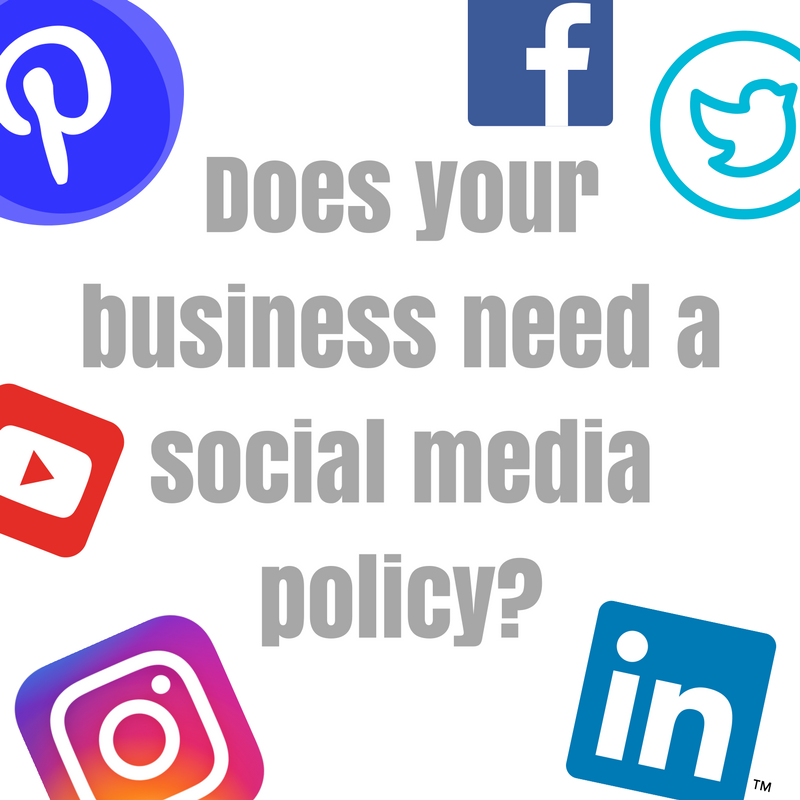With the ever-expanding and all-consuming network of social media platforms showing no signs of slowing down on the path to world domination, the question to be asked is should we all have a social media policy in place?
Do you have any rules concerning taking selfies during working hours and discussing office rules in the outside world known commonly as the internet?
Have you had witnessed a colleague or an employee saying something they shouldn’t online, posting inappropriate pictures, or even posting a drunken selfie at 2am and then failing to turn up for work the next day due to a sudden migraine? (Yes, this does happen)
Like it or not social media is here to stay and how we handle it can make all of our lives much easier. A social media policy can set guidelines and workable parameters between you, your clients and your employees about what is acceptable practice and what is a definite no-no.
Institutions that have strict safeguarding policies in place such as schools and colleges all have to have e-safety policies in place, with strict guidelines as to who can be be-friended online and communicated with outside of the school working day. These govern not only social media but all acceptable practices in general concerning the internet and cyberbullying. A good example is this social media policy from the University of York, which sets out the rules for using social media for work and what needs to be considered when using social media as a means of communicating with stakeholders and the wider community. A reminder of how social media can be used or misused in an educational setting is in this policy which is a guide for new teachers http://www.childnet.com/resources/social-networking-a-guide-for-teachers-and-professionals
It may be necessary, in all types of business, to give employees in particular guidelines for how to use social media appropriately for work. This is not only to prevent social faux-pas, but also to encourage welcome interaction and activity which will help market your business.
For example, for fear of causing trouble, an employee may resist commenting on a Facebook post where you’ve advertised a vacancy at your company. Actually, with your employees’ help, this post could reach more people, but if you set your guidelines too tight, employees will err on the side of caution. Putting down in black and white what they are allowed to do, as well as not allowed to do, will open up more options. With the right guidance a well-connected employee will say the right things and get your vacancy under the nose of the right people in the right manner.
Need help formulating a social media policy to suit your specific business? Hootsuite have some great advice here >> https://blog.hootsuite.com/social-media-policy-for-employees/
Want to know how the ‘big’ companies handle things? See these 5 examples of company social media policies
What do you do when an employee violates your social media policy? That depends. It depends on how much they’ve violated the policy and what action is appropriate given the terms of your policy. If posting anything about the company (good or bad) on Facebook carries threat of termination, then that could be seen as appropriate. However, it’s always best to consult an employment lawyer in any case. There is more information on the ACAS website about best practice in social media use by employees
If you need help formulating a social media policy for your workplace, please do get in touch with us


